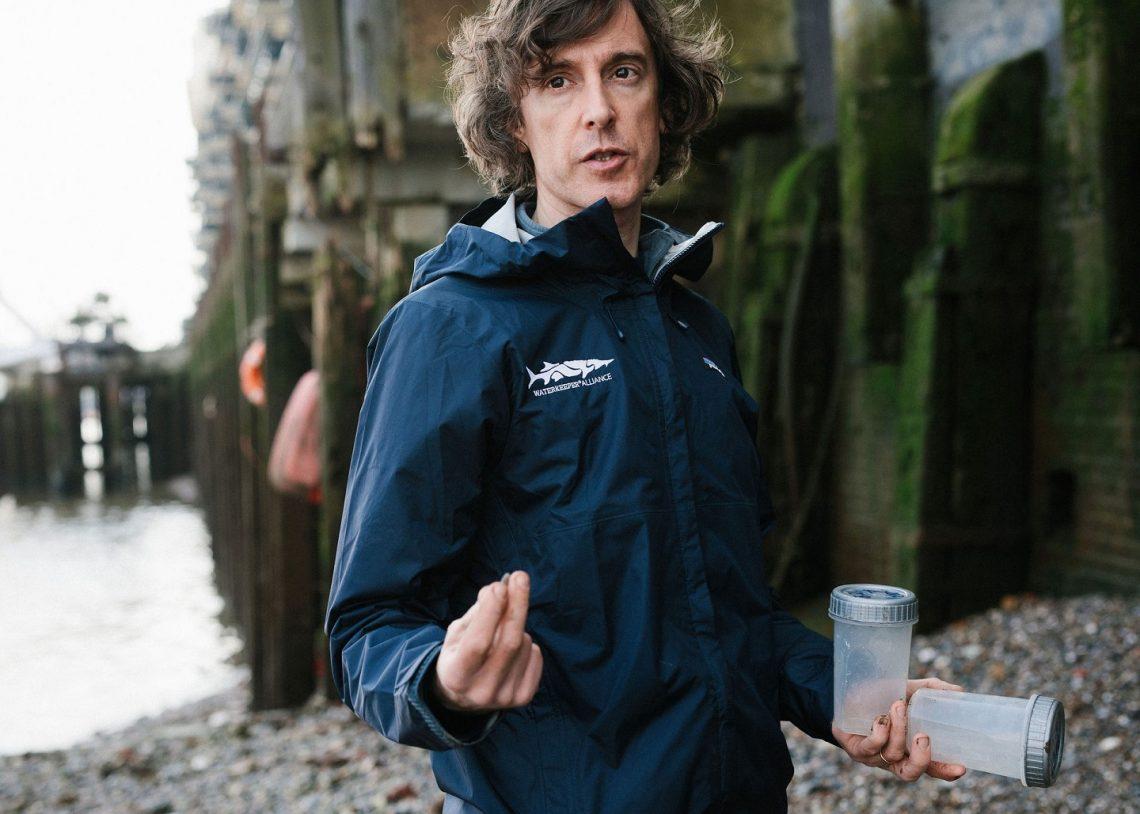
Update from the London Waterkeeper: what next in our fight against pollution?
London Waterkeeper is an advocacy charity that targets the systemic reasons for river pollution. Founder Theo Thomas shares his thoughts on what urgently needs to be done to clean up our rivers.
In the summer my teenage son went on holiday with friends in Devon. On one of the days, they went paddle boarding and swimming on the River Dart. It rained a bit. When he came home, he had an ear infection plus a skin infection, both of which needed antibiotics.
Because this was on a river there was no way of telling if sewers had overflowed. At the beaches along the coast there is much more information, but as the Dart isn’t a Designated Bathing Water, there is none. It wasn’t possible to determine if the sewage works for Totnes, or any of the others dotted along the banks had spilled. When I tried to learn more about the wastewater system of the area it also seemed that sewer overflows from Paignton go into the Dart, presumably to protect the swimming areas of Torbay. This is the problem, here and across the country. There is so little information available people are denied what they need to make informed decisions.
Water companies are to install monitors on all their sewer overflows by the end of the year. This data must be displayed online. Thames Water already has its spills, in near real-time, on a webpage, but it is the only company that does this currently. For example, while Yorkshire Water has an interactive Event Duration Monitoring map, you can only check how often its sewers overflowed for 2022. Not much use on a rainy day in 2023. The Government has set a target of 2025 for this information to be online in real-time for all water companies in England. It is imperative they are held to this target.
This lack of transparency is the bedrock of the problem. Water companies escape scrutiny and the public has no idea how well the infrastructure performs, infrastructure we pay for.
Even when a water company does display sewer overflows in real-time there is still much that is opaque. Last year Thames Water told the regulator, the Environment Agency, that 100% of its sewer overflows had monitors on. Then this year it revealed that, in fact, only 62% of them were actually fitted with devices. It says this will be rectified by the end of 2023. What this also exposed was that more than a hundred outfalls don’t even have permits. These unconsented overflows are off the books, more than 30 years since the industry was privatised. It’s not just the Thames Water region: last year Channel 4’s Dispatches programme reported that across England and Wales there are 870 overflows with no permit. Northumbrian Water and Welsh Water admitted that their unconsented outfalls were all in use. There is a gulf between the truth, and what we are told.
Sometimes Excellent
This lack of clarity makes it very hard to know how clean our rivers are, or when they are being affected by sewer overflows. When I have tested parts of the River Thames for sewage bacteria, the drier the weather, the better the water quality. After five days of no rain the e-coli levels were so low they would have been rated as Excellent under the Bathing Water Regulations. In dry weather it isn’t just a lack of sewer overflows that sees water quality improve but also less runoff from farms and roads. And yet, a BBC report in the summer raised the possibility of ‘dry spills’, sewer discharges when there is no rain. This is another doubt that chips away at the confidence of people that want to visit their local waterbody.
In the past the authorities told people that we shouldn’t expect our rivers to be clean, that it was inevitable they would contain a range of risks. This was a false narrative. People weren’t calling for pristine, antiseptic environments, but greater efforts to prevent avoidable contamination. Whether this is sediment from a building site; soil and manure washed off farms; or sewage overflows during unexceptional rain events. None of these are meant to happen. Stopping them would mean more efficient, well-run businesses, not pandering to unrealistic demands.
Using rivers as pollution processors means we are wasting nutrients and allowing infrastructure to degrade. As Thames Water admits in its new Business Plan for 2025-30 “In 2022, nearly 50% of our serious pollution incidents were caused by structural failure, the majority of which related to failures of rising mains from our pumping stations” and “This decline in health has taken place over decades as we have stretched the life of our assets, repairing rather than replacing.”
Remember who pays
The truth is that we are part-way along the journey to a functioning water sector, trust has been eroded. Restoring that will take transparency, scrutiny, and a public involved in the decision making. We pay the bills that pay the shareholders and as such are intrinsic to the process.
Clearly more investment is needed, and bills will rise, but the old approach of how the money is spent can’t continue. Poor decisions were made on what kind of infrastructure was built. With the pressure for more to be done sooner there is a great risk that we end up with ‘quick-fix’ options which are costly and not as effective as we need them to be. Or we could see the effluent from sewage works being treated to a lower standard to cut the number of overflows. While nationalisation isn’t something that the main political parties support, we do need a greater say for the public. A start to that could be a Citizens’ Assembly for Water. They have been held to explore how Social Care should be funded and many more issues, here and across the world. They take place over several weekends and members hear from specialists. Facilitators make sure everyone’s voice is heard. The conclusions are presented to those in power. Assembly members are representative of the wider population. We need to transcend the short-term political mindset, take politics out of water. Currently, any calls for bills to rise are seen by many as unacceptable. Until there is a balance in the power dynamic that will remain.
Theo Thomas is the founder of London Waterkeeper, an advocacy charity that targets the systemic reasons for river pollution. The organisation successfully campaigned for Thames Water to publish its sewer spills online, in real-time.








